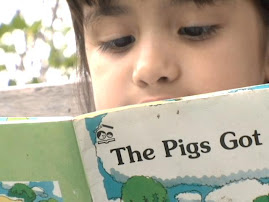After 25 years of working in HIPPY I did something completely new to me! Our partners over at TexProtects invited the members of the Home Visiting Coalition to testify to the Texas Senate Finance Committee - yikes! Basically they wanted the Committee to hear what we do and the impact we have. I only had three minutes which was hard because I can get talky!!! So, here's what I came up with:
"Today you are hearing from several of us. You may be asking yourself, why home visiting? why so many different programs? As we all know, our early influences have a lifelong effect on us. Each of our home visiting programs fills a different need in the communities we serve. By working with parents, in their home, we can have an even greater impact than in a clinical or classroom setting. By doing home visits we meet parents where they are. Home visits allow us to serve the most difficult to reach and isolated parents. Home visits allow us to tailor services to the unique situation of the family.
I am here to tell you about our program, Home Instruction for Parents of Preschool Youngsters. Our program focuses on school readiness and parent involvement. We serve 3, 4, and 5 year olds. In an early survey on our families, they owned on average ONE CHILDREN'S BOOK in their home. That means that most had no books, and a few had several books. Using our curriculum, children's books and common household materials, our participating parents learn how to read daily with their children, how to play educational games, and how to set up their home as a learning environment.
Our home visitors are alumni from our program - they have worked with their own children and are now teaching other parents. Using a 30 week curriculum, parents are taught simple activities that will get their children ready for school. As a result, 91% of our children are ready for Kindergarten according to the Bracken School Readiness Assessment, and 95% are ready according to their Kindergarten teachers. We have tracked our children through high school. We find that early on, for example in 3rd grade, our native Spanish speaking students were able to successfully pass standardized tests in English at he same rate as native English speakers. By 9th grade, the grade with the highest drop out rate in Texas, our students stayed in school and later graduate from high school at a higher rate than students were had not been in the program. Throughout school, our students showed higher attendance rates than the average. All these factors, not only reflect their success in school, they reflect the lifelong influence that that early start has.
Every parent can be taught the skills needed to prepare their own child for school. Every child deserves to walk into their k classroom ready to succeed. That's what we do."
So - if you really want to geek out - you can watch the entire testimony, including an adorable little boy from ECI who stole the show :). It's on this link, scroll down to January 31, 2013, my part starts at 4:38, but you need to see the little boy, he's way cuter!












